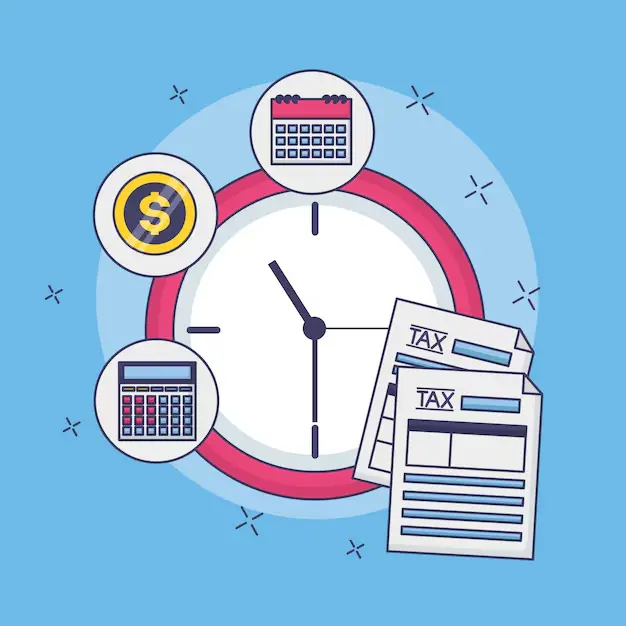Corporation tax is an important element of business taxation in the United Kingdom, impacting businesses of all sizes. Understanding its workings is essential for businesses to remain compliant and optimise their financial strategies. This comprehensive guide provides an in-depth exploration of corporation tax in the UK, covering its fundamentals, recent changes, and strategic implications for businesses.
Whether you’re a small business owner, a financial director, or an accounting professional, gaining clarity on corporation tax UK can help accounting practices like yours manage your client’s obligations effectively, avoid penalties, and potentially reduce their tax liabilities. Dive into this guide to equip yourself with the knowledge needed to navigate the complexities of UK corporation tax confidently.
What is Corporation Tax in the UK, and Who Pays it?

It is applicable for all UK-based businesses and ischarged based on yearly profits. As an accountant running an accounting practice, you will be aware that companies or businesses are not entitled to exemptions in corporation tax and the rates are decided based on the yearly profits. However, there are ways to reduce it and increase savings.
Corporations based in the UK must pay corporation tax, for which they must file self-assessment tax returns. Usually, most corporations and businesses opt to appoint an accounting practice like yours to do the self-assessment and other tasks related to corporation tax. However, if you want to reduce your workload, you can outsource corporation tax to a professional and experienced outsourcing service provider.
How to Register for Corporation Tax with HMRC?
Your clients whose businesses are based in the UK have only three months from the start of operations to inform the HMRC. Once your clients are clear about their business type, they will provide information without any problem. Some of the information required by the HMRC is the starting date of the business operations, the company’s name, the registration number, the location of the main office, and the annual closing date of your financial statements.
What is the UK Corporation Tax Rate?
Currently, UK-based companies with profits above £250,000 must pay 25% of corporation tax, and those below are required to pay 19% corporation tax. However, these corporation tax rates are subject to change.
When Does Corporation Tax Have to Be Paid?
Your clients are required to pay tax or report if your client have nothing to pay by the deadline – which is usually 9 months and 1 day after the end of your accounting period. The deadline to file the company tax return by the deadline is usually 12 months after the end of your client’s accounting period. These deadlines are subject to changes, so please visit the HMRC website for current information.
Corporation Tax UK Allowable and Disallowable Expenses
You must be thinking about how I can reduce the tax rates for my clients. One way to reduce it is knowing the allowable and disallowable expenses. Allowable expenses are those that your clients incur while running their business and can be claimed as tax deductions. These expenses are not taxable, and they will help your clients reduce how much they have to pay on their profits. Let’s understand allowable expenses better through an example: say your client’s company made £30,000 at the end of the year, and your client spent £5,000 on allowable business expenses. You wouldn’t have to pay tax on the entire £30,000. Instead, you’ll only pay tax on £25,000.
Some of the allowable costs are:
- Office, property, and equipment expenses
- Car, van, and travel expenses
- Staff expenses
- Uniform expenses
- Legal costs
- Marketing costs
- Training cost
On the other hand, disallowable costs are expenses incurred by your client while running their business but cannot be claimed for tax reductions in the UK. You will get clarity on this expense when you ask whether it is for running the business or giving your client a personal benefit. Expenses that provide personal benefits are disallowable expenses.
Some of the disallowable costs are:
- Personal loans
- Gifts and entertainment expenses done by clients on their customers
- Everyday office clothing
- Fines and penalties for non-compliance
- Donations made to charitable trusts or political parties
- Asset’s depreciation
[lead_magnet id=”38417″ post_id=”38263″]
Understanding CT600 and Its Importance
Unlike individuals whose tax bill is automatically generated by the HMRC based on the information provided, your clients are fully responsible for determining the tax liability. It is their responsibility or your responsibility if they have delegated it to you to file the CT600 forms every year. The filing of CT600 forms with HMRC and Companies House is compulsory because they contain information about your client’s businesses.
CT600 forms are part of the corporation tax return and must be submitted along with supporting documents to the HMRC. CT600 is submitted electronically, but it can be submitted in paper form in exceptional cases. If you submit them on paper, you must include WT1 to explain why you could not submit them online. The CT600 contains the following information: business name and registration number, registered office address, tax reference number, revenue and profits, tax estimations, exemptions, and so on.
Accounting outsourcing service providers offering corporation tax services handle such tasks perfectly. So, opt for these services if you are finding yourself overloaded. Checkout their case studies and find the best service provider that fulfils your requirements
What If Your Client Has No Tax Due?
Corporate tax returns must be filed annually, even without corporation tax. The HMRC will send your clients payment reminders before the due date unless the nil-to-pay form is submitted. If your client’s business is inactive, you must inform the HMRC. When the HMRC is satisfied, a letter will be issued stating that your client’s business is exempted from paying it and submitting annual tax reports.
How Do I Pay Corporation Tax?
There are multiple ways to make corporation tax payments. You and your client must only worry about making the payments before the due date, or else your client will face penalties. We have also noticed instances where payments could not be made because the last due date was a weekend or a holiday. Hence, keeping track of the date and paying HMRC on the previous date is important.
Here are some routes for making payments to the HMRC
- For instant payment, you can opt for online banking options
- You can also make the payments at your local bank
- Direct debit option can also be used for making payments
What are the Penalties for Late Payments of Corporation Tax?
Late filing of tax returns, payment of taxes, and giving false information will invite penalties from HMRC. Now, the regulatory agency decides on the penalties for late submissions of corporation tax returns, and these are subject to changes. For the latest penalties, please visit this government website.
Late Payments of Corporation Tax

Your client will be charged interest when they fail to pay corporation tax. HMRC has multiple ways to collect outstanding taxes, such as filing litigation, reimbursement through salary or retirement funds, and appointing debt collectors to collect payments.
False Information
While doing the corporation tax returns, if the information provided turns out to be false, it will attract penalties from HMRC. The penalty amount will depend on whether the mistake was intentional, whether there was an attempt to conceal the information or whether you admit to an error before the HMRC finds it. For additional details on penalties, please visit this website.
How to Reduce Your Corporation Tax Bill?
Paying corporation tax can be a huge burden for your clients, and if they ask for your suggestions to reduce this burden, you must be ready to answer them. There are four ways you can suggest to your clients that they reduce corporation tax.
Claim Allowable Expenses
Expenses incurred by your client for running its business are considered allowable expenses. These expenses can be deducted from the profits, and then corporation tax can be charged. Thus, your clients will be liable for reduced corporation tax.
Company Owners Paying Themselves Salaries
The company earns profits, not the person working for it. So, the company’s owner, your client, can decide to pay themselves a salary. A salary comes under business expense, which reduces your client’s taxable profit.
Making Contributions to Employer Pension
Employer pension contribution will accept your client’s contribution from the business which is exempted from corporation tax.
Doing Early Payments to HMRC
If your clients pay corporation tax as soon as possible, HMRC will repay them some of it as interest at a rate of 0.5%.
Frequently Asked Questions (FAQ)
Is a Reduction in Corporation Tax Possible?
Yes, corporation tax will reduce by claiming allowable expenses, tax credits, and allowance.
When is Corporation Tax due?
It is due 9 months and 1 day after the end of your accounting period. But this deadline can change if the company is in business for less than 12 months.
What are allowable expenses for Corporation Tax?
Allowable expenses can include things like staff wages, rent for business premises, utility bills, office supplies, and travel expenses related to the business. These are deducted from your revenue to calculate your taxable profit.
Can Corporation Tax be paid in instalments?
Businesses exceeding profits of £1.5 million should pay corporation tax in instalments based on the estimated profits.
Are dividends subject to Corporation Tax?
Corporation tax is not applicable to Dividends for UK companies.
Conclusion
This guide attempts to simplify the workings of corporation tax in the UK for accounting practices. It enables you to prepare better and serve your business clients more efficiently and proactively. If you still require assistance handling corporation or personal tax, you can approach Corient UK.
Corient UK has established itself as a trustworthy and professional outsourcing service provider for many accounting practices in the UK. Our tech-savvy accounting services, such as booking, payroll, year-end, corporation, audit, and VAT services, have streamlined the process for many accounting practices. We can perform the same miracle for you. Simply describe your requirements and doubts on our website contact form, and our executive will contact you as soon as possible.
Looking forward to a long-term association.


